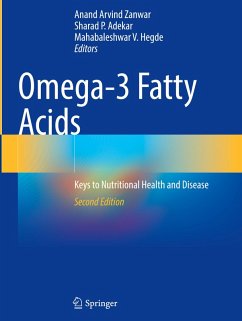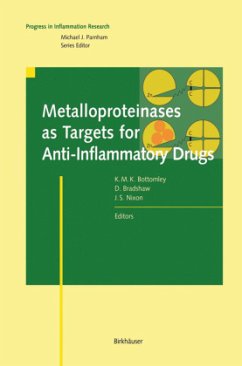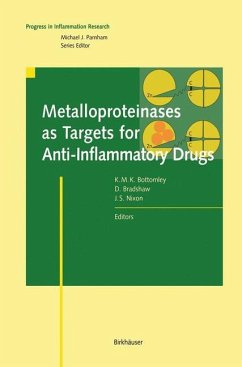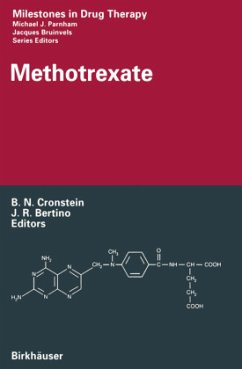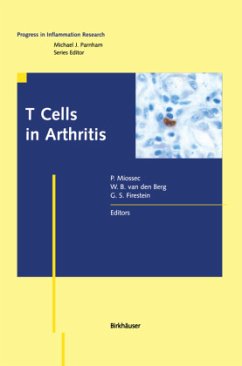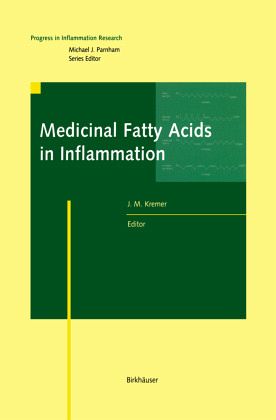
Medicinal Fatty Acids in Inflammation
Versandkostenfrei!
Versandfertig in 1-2 Wochen
77,99 €
inkl. MwSt.

PAYBACK Punkte
39 °P sammeln!
This volume of Progress in Inflammation Research is a unique compilation of work performed by a wide spectrum of investigators from different medical disciplines. It is fascinating that dietary alterations of fatty acid intake can result in a range of salutory changes in a great variety of medical conditions. Most of the good scien tific work which has led to these observations has been performed over just the last two decades. This is of course not a very long time in the context of the history of the human species. Recently performed analysis of fat intake from paleolithic times has indicate...
This volume of Progress in Inflammation Research is a unique compilation of work performed by a wide spectrum of investigators from different medical disciplines. It is fascinating that dietary alterations of fatty acid intake can result in a range of salutory changes in a great variety of medical conditions. Most of the good scien tific work which has led to these observations has been performed over just the last two decades. This is of course not a very long time in the context of the history of the human species. Recently performed analysis of fat intake from paleolithic times has indicated that our hunter-gatherer ancestors consumed as much cholesterol as modern Western man, but strikingly less saturated fatty acid and more polyunsatu rates, including n-3 fatty acids. Wild game has the terrestrial source of n-3 incorpo rated in its fat since browsing animals derive 18:3n-3 (alpha-linolenic acid) natural ly from leafy plants. There is, however, little opportunity for modern Western man to get n-3 fatty acids from the diet if one does not consume fish. Modern agribusiness provides ani mal feeds high in n-6 fatty acids, mostly derived from linoleic acid (18:2n-6) in corn feed. Therefore, grazing animals have no access to alternative fatty acids in either feed or grasses, the latter containing little or none of these potentially beneficial highly polyunsaturated fatty acids.







